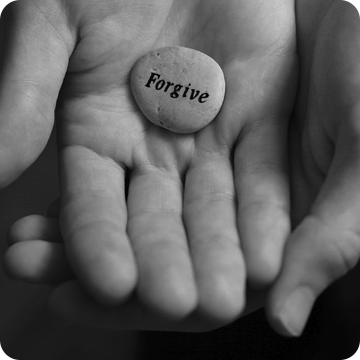
- admin
- December 5, 2024
The Power of Acceptance and Forgiveness in Trauma Healing
The Victim’s Guide: A Victim’s Guide by Joshua Barrett dives into the experience with trauma, recovery, and the power of acceptance on a healing journey from his personal experience. Not putting too much interpretation over himself, Barrett is exemplary as a guide for the readers, prompting them to journey through the twisted emotional landscape of trauma and offering helpful insight into the healing process. These include radical acceptance, forgiveness, and resilience in surmounting past pain.
Key Themes of The Victim's Guide: Towards Normalcy
Acceptance became a set-base healing for Joshua. It was not a smooth path, but full of introspection and moments of profound emotional reckoning. He can genuinely conceive that radical acceptance is not some surrendering idea but instead being included with the entire setting of his narrative. He had learned to accept his past and make room in himself to move forward because his trauma had been a part of his story but was not something that had to define his future.
There is a sense of personal vulnerability in which Barrett narrates his history of childhood abuses, addictions, and circles of self-destruction. His very story, particularly Chapter One: Introduction to Joshua’s Journey, is wondrous and tells deep and permanently lasting scars resulting from trauma throughout one’s life. His frankness over his substance use and emotional crashes gives readers a genuine look at the dilemmas many experience as they attempt to cope with unprocessed trauma.
Joshua’s journey to several of them is emotionally complex. Reflecting on his wars, Joshua confides forgiveness is not just clearing others’ guilt-free selves is the release from the weight of resentment. In self-compassion, he learned how to stop punishing himself for past mistakes. This was at those moments of personal reflection how Joshua’s road map to emotional healing would unfold – forgiveness: the ultimate act of self-love and personal liberation.
Trauma is only part of your life story, not the whole story: Barrett believes that trauma plays a part in one’s life story, but one does not have to be bound by it. This victimhood narrative is such a mental trap where humans never get out of this loop of powerlessness. With radical acceptance and forgiveness, there is a chance to regain control of lives and start writing new chapters in the story. For that purpose, Barrett has represented himself as transforming from being a prisoner of his trauma into being someone who can thrive well in this story.
He had found solace in self-reflection, which journaling brought him. Every word that he wrote could be processed since the complex emotions surrounding his trauma were very much alive. The most pivotal moment Joshua lived was when he sat and wrote a letter to his young self—a declaration of forgiveness he had wanted but never allowed himself—the moment Joshua finally found self-compassion helped him most in his emotional healing. His journaling became a tool to acknowledge the pain and forgive the boy who carried it for so long.
Role of support systems: Barrett further points out that nobody should face trauma alone. Whether it is professional therapy, support groups, or the loved ones that someone trusts, it makes their recovery life all the more important because they have a system for support. It will also indicate that healing is a group process, and help-seeking contributes to healing. Perhaps most dramatically, Barrett’s own experience of finding refuge in therapy and recovery groups illustrates this as a reflection of the weight that is too heavy to be handled alone from trauma.
The Victim's Guide Relates to the Power of Acceptance
Acceptance, for Joshua, became the basis for his healing. It is not easy, but it’s a process. Part of it is looking inward and profound emotional reckoning. The reflections here in radical acceptance define deep understanding- that acceptance is not resignation but the key to moving trauma into a larger life narrative. Acceptance of the past, thus, allowed space for him to move on since it appeared he realized his trauma was part of his history but not part of his future.
This type of acceptance, however, does not have anything to do with giving up on hope for a better future, nor is it a form of surrendering to trauma but instead realizing that this experience happened, accepting the impact it has on oneself, and then healing forward.
Barrett further emphasizes that they can move toward recovery once they acknowledge their reality, whether in therapy, self-care practices, or forgiveness.
Conclusion
Recovery is a deeply personal journey, marked by moments of acceptance and the grace of forgiveness. Joshua’s story is a testament to the power of embracing one’s trauma while practicing self-compassion. As readers seeking emotional insights, the journey of healing may feel heavy, but we allow ourselves to breathe easier in accepting and forgiving, step by step. Forgiveness—especially of oneself—is not just an act of kindness but a profound declaration of self-worth.
“The Victim’s Guide: A Victim’s Guide” is highly personal and revealing in exploring trauma, recovery, and power through acceptance. Honest storytelling and practical advice make Joshua Barrett’s book a wellspring of hope and guidance for those who believe the trauma they face has decided their lives. And at the same time, the difficulty of trauma does not have to define the rest of one’s life. Being redeemed within healing would happen with radical acceptance, self-compassion, and forgiveness because the healing and reclaiming of the individual’s story form a way to life, fulfillment, and peace.
This book is also helpful for those trying to recover from trauma to support them in developing an action plan.
